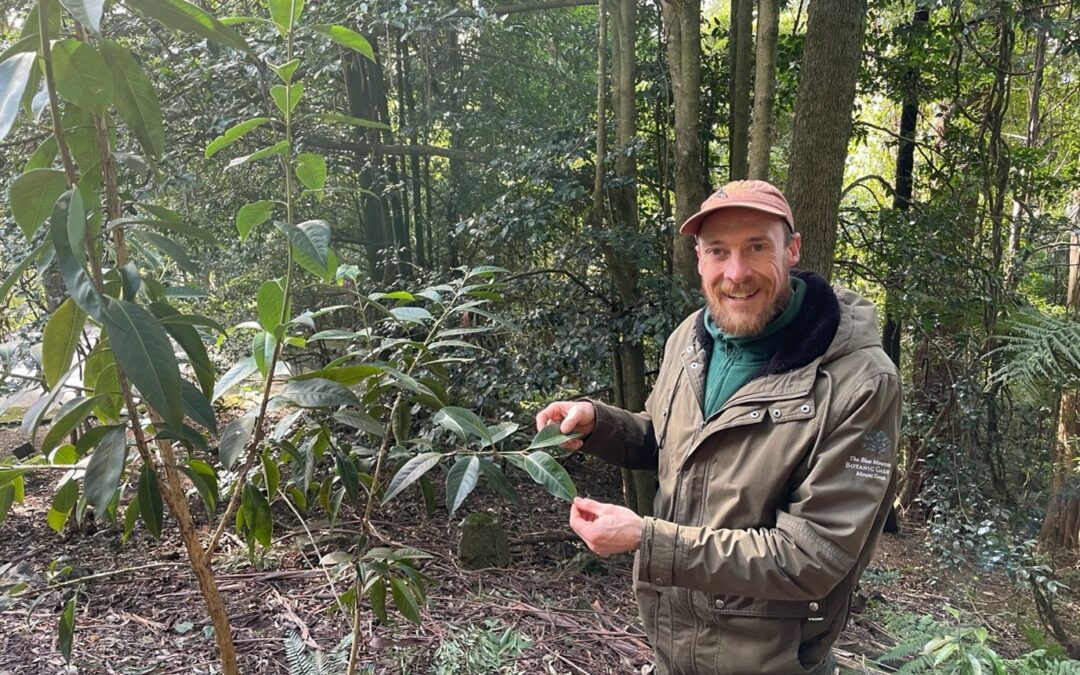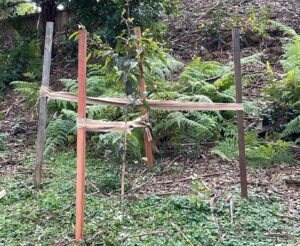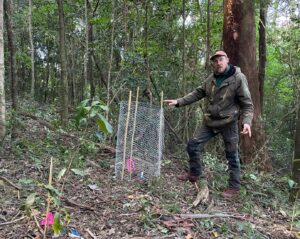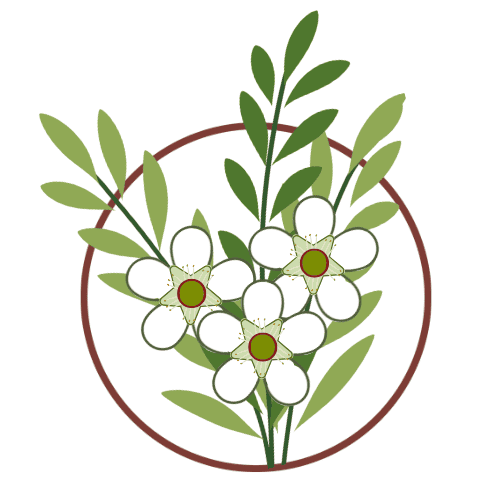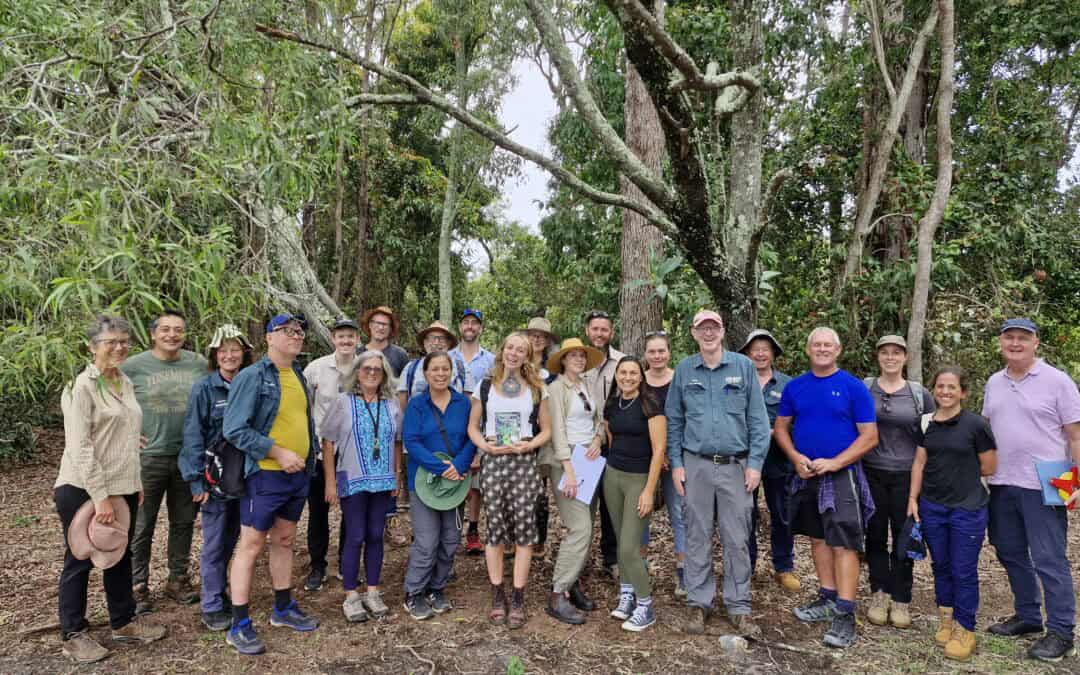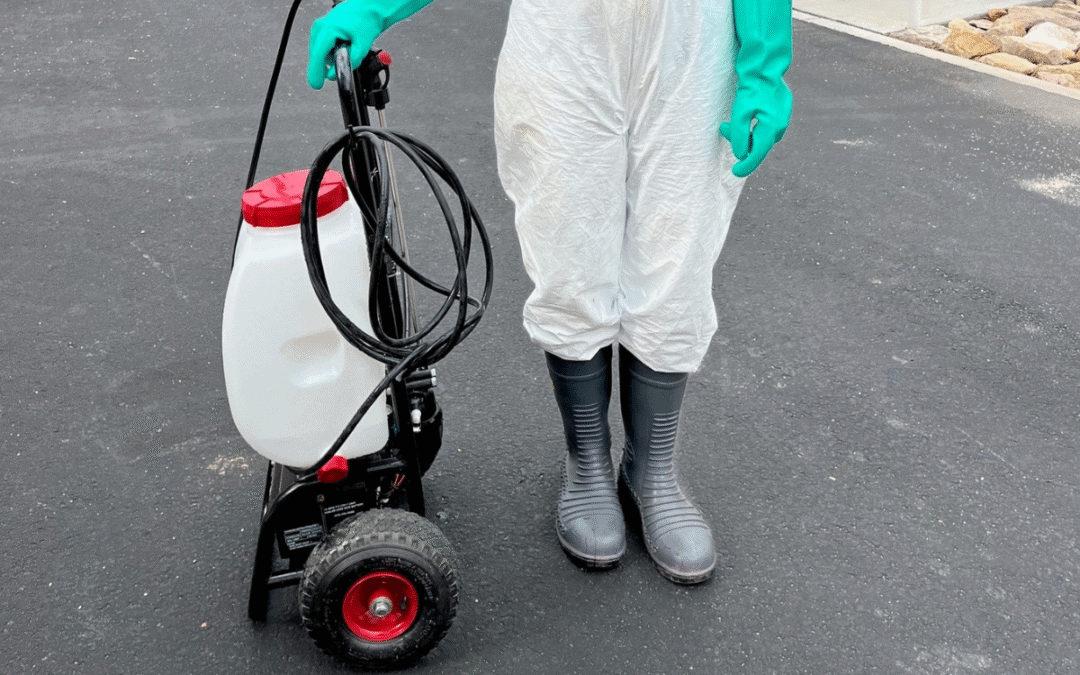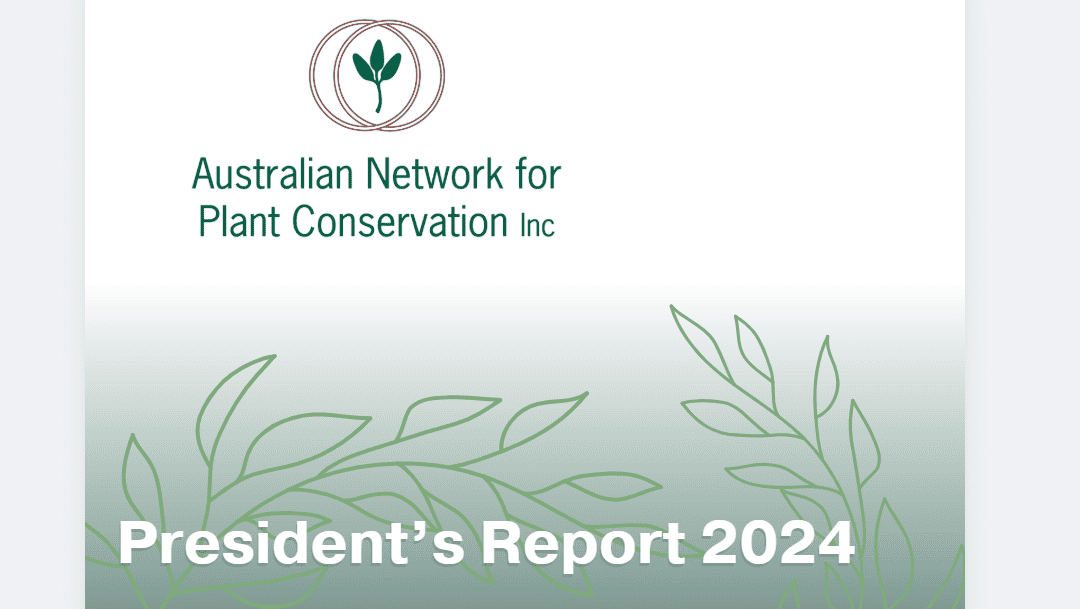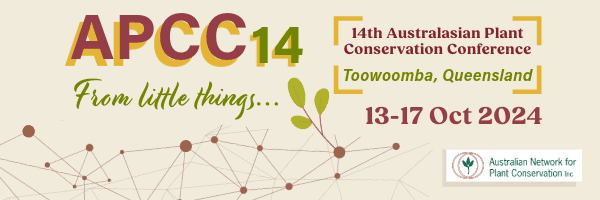
Aug 1, 2025 | News
Partner gardens collaborating to safeguard vulnerable species
Over the past several years, the distribution of various lineages of Native Guava (Rhodomyrtus psidioides) and Scrub Turpentine (Rhodamnia rubescens) to partner gardens has played a vital role in the conservation of species impacted by Myrtle Rust. Between 2021 and 2024, dedicated teams at Lismore Rainforest Botanic Gardens, Blue Mountains Botanic Garden – Mt Tomah, The Australian Botanic Garden – Mt Annan, Australian National Botanic Gardens – Canberra, Booderee Botanic Garden and Dandenong Botanic Garden have nurtured and closely monitored these meta-collections.
The good news is, despite facing a range of challenges—including outbreaks of Myrtle Rust, animal browsing and damaging storms—all distributed plants remain alive! This resilience is a testament to the commitment and care provided by staff across all participating gardens. ☀️ Special thanks to all involved.

Supports put in place to protect trees from wild weather

Fencing to protect the trees from browsing
With plans underway to distribute additional lineages from central collections in New South Wales and Queensland, we have been actively reviewing original processes and collecting lessons learned from each garden’s experience. Our approach aims to continually improve outcomes for these at-risk species.
Two weeks ago at Mount Tomah, Ian Allan shared valuable insights on site selection and plant management. He observed that plants positioned with better access to sunlight have shown notably stronger growth. Looking ahead, Ian highlighted the potential for experimenting with hedge-format plantings—an approach that could offer more efficient use of space and improved management options.
If your garden or arboretum is interested in hosting safe custody collections for species affected by Myrtle Rust, please reach out to Pip Walsh at myrtlerust@anpc.asn.au to learn more.
Feature image: Ian Allan with one of the larger Native Guava trees at Mt Tomah.

Jul 17, 2025 | News
The ANPC is excited to announce that we have been selected as one of 2025’s Bank Australia community customer grant recipients, to support our QTPN Flora Discovery Project. These grants aim to grow the impact of Bank Australia customers who are making a difference in areas such as nature and biodiversity, climate action, affordable and accessible housing and First Nations Recognition and Respect.
Five Flora Survey Training Workshops will be held during 2025/26 to train community-based volunteer groups and citizen scientists in regional areas of Queensland to undertake targeted native flora surveys and fill key gaps in our knowledge of our threatened plants. The workshops will build their capacity to conduct strategic and highly valuable surveys of rare flora, and assist in the long term planning, implementation and monitoring of recovery actions for these species.
Read more about the workshops and the Bank Australia grant here: https://www.anpc.asn.au/qtpn-flora-discovery/
A big thank you to Bank Australia for supporting this project!

Feature image: Attendees at a Currumbin Flora Survey Training Workshop with the QTPN. Credit: Paul Donatiu

May 30, 2025 | Events Category, News
APCC15 has been announced – Mark those calendars and follow us for updates!
We’re excited to announce that our 15th Australasian Plant Conservation Conference (APCC15) will be held in Port Douglas, Queensland during the week of 24-28 August next year! In the spectacular Wet Tropics, we will be within touching distance of the stunning world heritage listed Daintree Rainforest and in a town with abundant accommodation and dining options. Keep an ear out and follow us on Facebook or bookmark our conference webpage for conference updates as they come.

Mar 28, 2025 | News
The President’s Report for 2024 from President Caroline Gross is now available to view online.
Contained within are details of all of the significant projects which have been undertaken in collaboration with our partner organisations this year, including:
and much more…
Caroline has also highlighted the important work carried out by our project managers Paul Donatiu and Chantelle Doyle over the past year, along with Outreach Delegate Bob Makinson, as well as office staff Jo Lynch, Richie Southerton and volunteer Robert Hawes. She also took the opportunity to thank the members of our committee who are finishing their terms.
See the full President’s Report 2024 here.

Mar 20, 2025 | News
We had so many wonderful and varied presentations, there’s so much to learn about plant conservation in Australia, all in one convenient place! A big thanks goes to our presenters for sharing their wealth of expertise and insights over 3 fantastic days.
